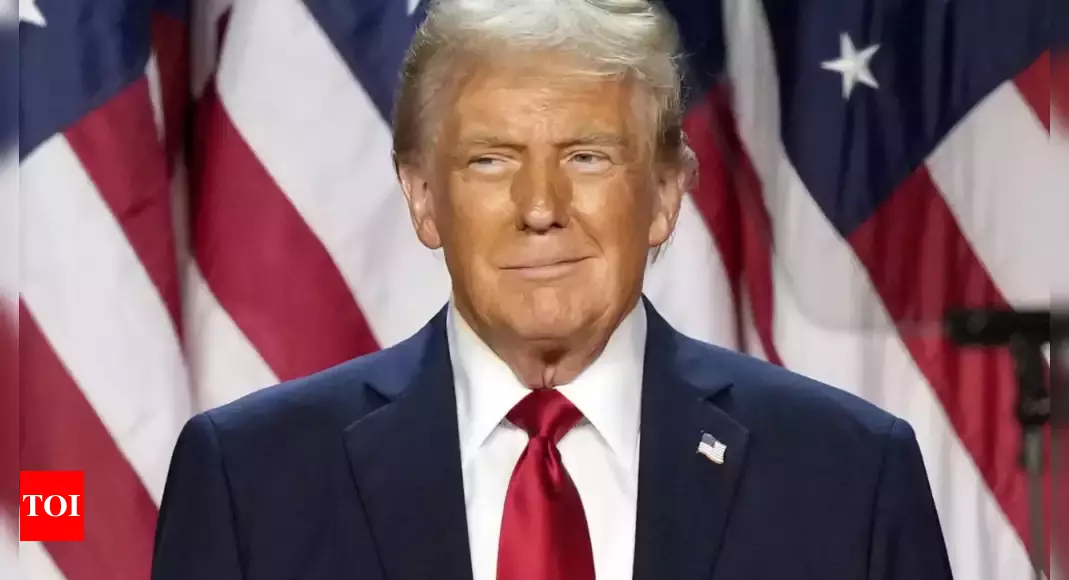Donald Trump never wasted much time setting the stage for his second presidential term. In every sense, he has rolled out bolder moves and given signals to demonstrate which priorities he will take forward in the next four years. His initial moves will suggest that he is trying to shake up Washington fundamentally, overhaul government agencies, and focus on a far more aggressive foreign policy. Some critical developments during his first week as president-elect:
1) A Loyal Team to Reshape the Government
Building a team of loyalists or individuals who share the ideal of a more disruptive government has been one of the most significant steps taken by Trump. Not reliant on experienced political personalities, the appointments made by Trump focused on reshaping existing structures within the federal bureaucracy.
For example, his nominee for defense secretary is an outspoken opponent of “woke” military policies, indicating he will shake up Pentagon leadership. His choice for health secretary, Robert F. Kennedy Jr., will address corruption in the US health agencies and even tax departments like the FDA. Among his alternatives, a new department led by such technopreneurs as Elon Musk and Vivek Ramaswamy, specializing in deep and sufficient cuts in regulation and the reduction of costs, indicates he wants to strip down government functions and bureaucratic red tape.
2) A Republican Congress Willing to Back His Program
He is thus likely to confront a solid legislative ally in Congress, with Republicans controlling both the House of Representatives and the Senate. A Republican majority in Congress will give him a more straightforward path toward passing key policies: tax reform, deregulation, etc.
This further signifies that Trump will face fewer fights from Democrats and fewer congressional probes than his first term’s final part. This can be crucial in the council’s balancing of both chambers in enacting some of his main promises like mass deportations, hikes in tariffs on imported goods, and rollbacks of environmental protections.
3) Senate Republicans May Challenge Trump’s Authority
However, Trump’s grip on the Senate may be more firm than he thinks. Proof of that came earlier this week when the Senate chose its new Republican leader. In what the president’s allies portrayed as an effort to make a hardline loyalist, Senator Rick Scott, the new Senate minority leader, the Senate settled instead on John Thune, a more moderate figure and one with a decidedly less amiable relationship with Trump.
This bodes well for the possibility that Trump may have an uphill battle to consolidate his influence with Senate Republicans fully. Other tests of his power will surely come in the confirmation hearings for some of his more contentious cabinet picks. For instance, it’s already been reported that some Senate Republicans oppose Trump’s nomination of Matt Gaetz as Attorney General, meaning Trump’s influence might be tested on Capitol Hill.
4) Legal Troubles Could Be Eased with a Delay
While the court battles shadow Trump like never before, his election triumph injected complications into his legal concerns. First, his criminal fraud conviction in New York related to the hush-money case could be reversed or postponed because of the Supreme Court’s latest extension of presidential immunity.
Judgment was reserved on whether to strike out the conviction, and a verdict now is awaited next week. This may throw the judgment up in the air to have the conviction expunged, but the decision would likely delay the scheduled sentencing on November 26, 2024, making things even more unstable for him.
5) Hardline Approach to China
Perhaps the most crucial theme from Trump’s early moves is his sharp focus on China. Contrasted against the more conciliatory approach of President Biden, Trump is surrounding himself with China hawks—figures who take a view that makes them see Beijing as a significant economic and military threat to the United States.
Marco Rubio, newly nominated Secretary of State, has spoken numerous times about China’s increasing influence and called it “the most advanced adversary America has ever faced.” National Security Adviser Mike Waltz said the United States is locked in a “cold war” with China. Other high-level appointees, such as Elise Stefanik for the UN Ambassador role, have publicly accused China of interfering in US elections.
Tensions between the US and China had already been frayed under Trump’s rule, and new appointees make the prospects for the president’s second term only more ominous. From increased tariffs to aggressive export controls, it seems that Trump will do whatever it takes to counterbalance China’s growing power internationally.
Conclusion: The President-Elect Preparing for Fundamental Changes
It has barely been a week since Donald Trump won the presidency. Still, he has given the impression that his second term would be defined as much by an obedient, reformist team, an accommodating Congress, and an aggressive approach to home and foreign policy. Government agencies overhauled towards a more assertive China policy. Early indications are clear enough: Donald Trump appears to be hell-bent on leaving a lasting mark on Washington and beyond. And, in the coming weeks, it will likely reveal how successful his administration is in delivering the disruptive, America-first government he has dreamed up.















